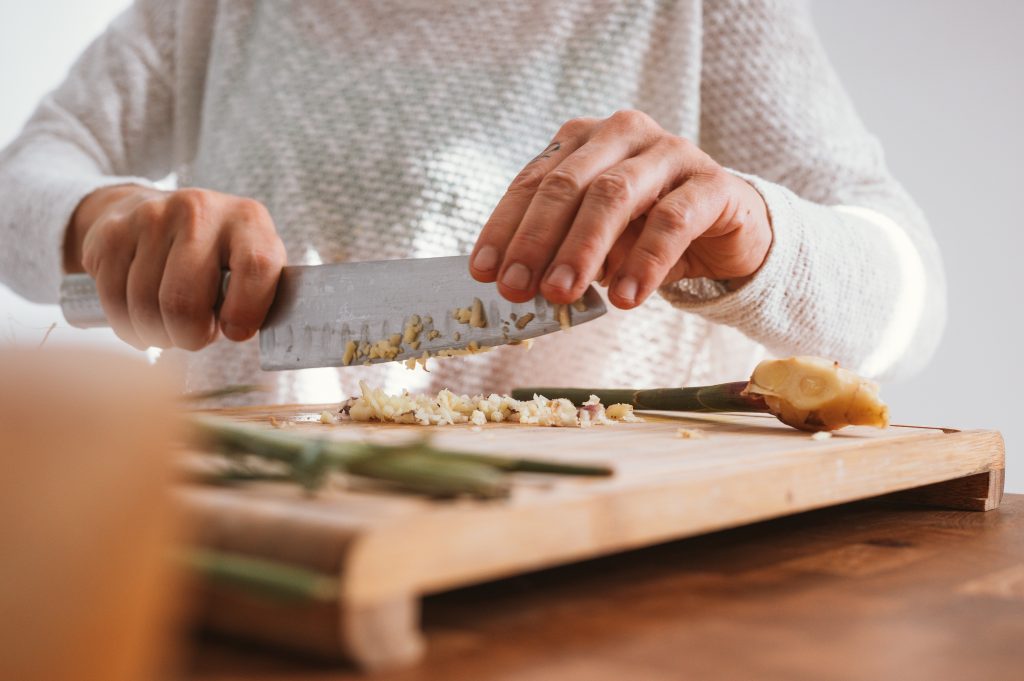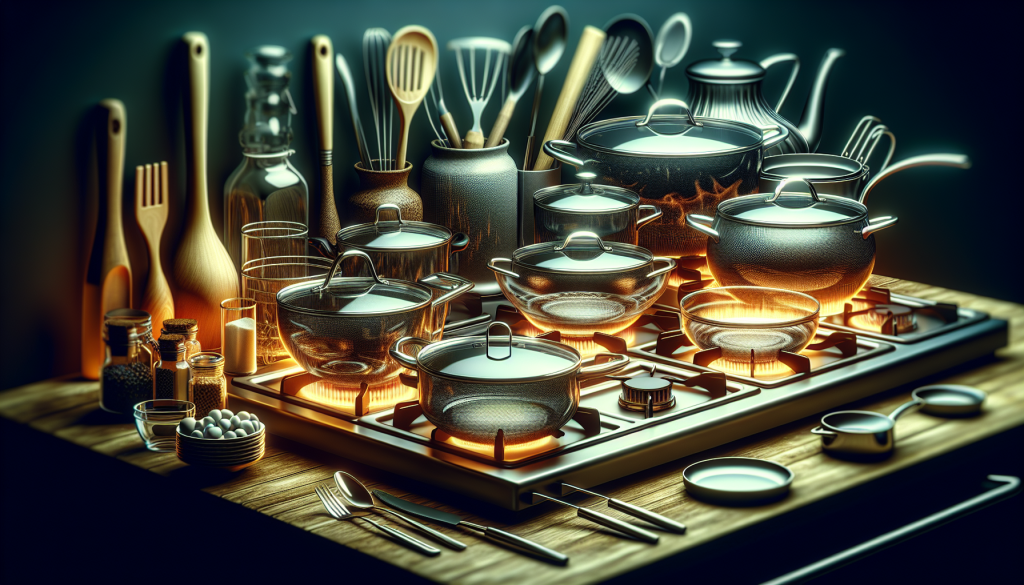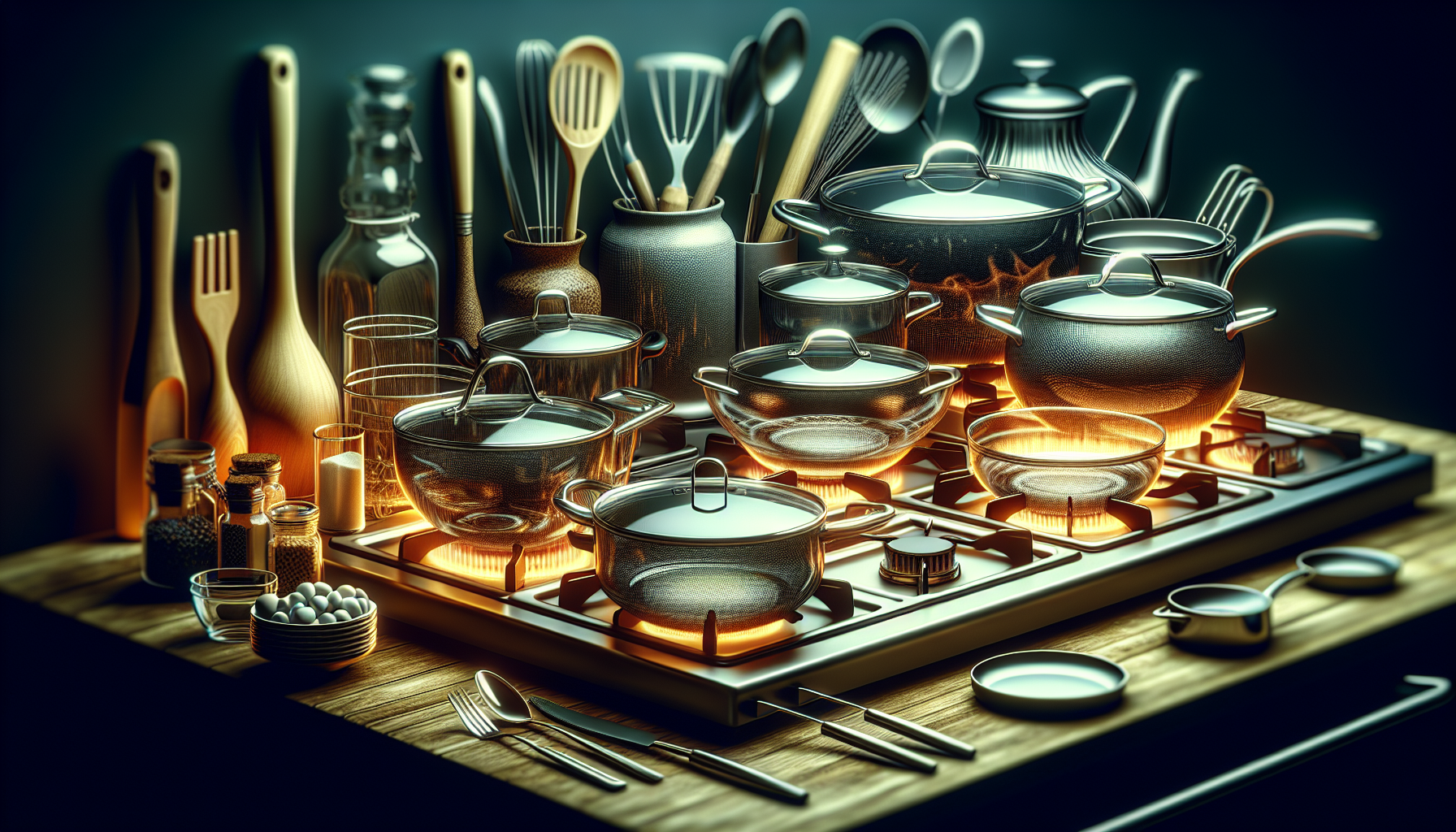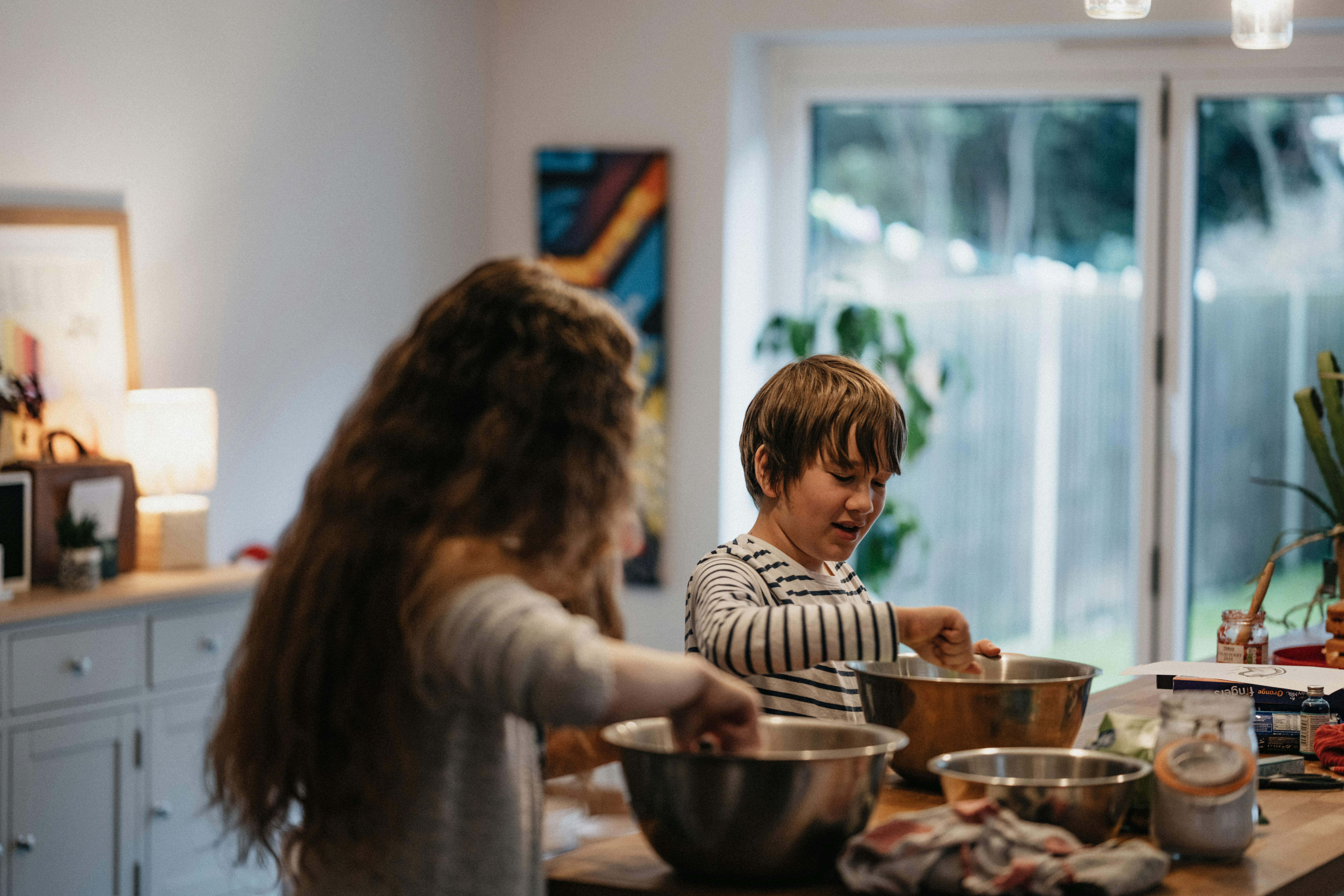Using glass cookware for stovetop cooking may seem like a precarious idea, but fear not! Let’s dive into the safety and practicality of using glass cookware on your stovetop. We will debunk common myths, provide valuable tips, and empower you to make informed decisions about your culinary adventures. So, get ready to expand your cooking horizons and discover the untapped potential of glass cookware!
Some suggestions to consider!
Astercook 21 Pcs Pots and Pans Non Stick Ceramic Cookware Set, Detachable Handles, RV Kitchen Cooking Set, Oven Safe, Induction Ready, Stackable, Pink
$59.99 (as of February 17, 2026 09:13 GMT +00:00 - More infoProduct prices and availability are accurate as of the date/time indicated and are subject to change. Any price and availability information displayed on [relevant Amazon Site(s), as applicable] at the time of purchase will apply to the purchase of this product.)Cuisinart 77-11G Stainless Steel 11-Piece Set Chef's-Classic-Stainless-Cookware-Collection
26% OffT-fal Stainless Steel Cookware Set, 11 Piece, Induction Cookware, Oven Safe to 500°F, Kitchen Cooking Set w/Fry Pans, Pots and Pans, Dutch Oven, Saucepans, Kitchen Essentials, Silver
$169.99 (as of February 17, 2026 09:13 GMT +00:00 - More infoProduct prices and availability are accurate as of the date/time indicated and are subject to change. Any price and availability information displayed on [relevant Amazon Site(s), as applicable] at the time of purchase will apply to the purchase of this product.)
Benefits of Using Glass Cookware
Glass cookware offers several benefits that make it a popular choice for stovetop cooking. Here are the key advantages you can enjoy when using glass cookware:
Durability
Glass cookware is known for its durability. It is made from high-quality materials that can withstand high temperatures without breaking or cracking. Unlike other materials, such as ceramic or stainless steel, glass cookware does not easily chip or scratch, ensuring its longevity in your kitchen.
Versatility
Glass cookware is incredibly versatile and can be used for a wide range of cooking tasks. Whether you’re sautéing vegetables, simmering sauces, or baking casseroles, glass cookware can handle it all. Its ability to go from stovetop to oven seamlessly makes it a convenient choice for busy cooks.
Transparency
One of the unique features of glass cookware is its transparency. This allows you to easily monitor the cooking process without lifting the lid and releasing valuable heat and moisture. Whether you’re checking the browning of your ingredients or ensuring your food is cooked to perfection, glass cookware provides clear visibility.
Non-reactivity
Glass cookware is non-reactive, meaning it won’t interact with the ingredients you’re cooking. This is especially important when working with acidic or alkaline foods, as reactive materials can alter the taste and quality of your dishes. With glass cookware, you can trust that the flavors of your food will remain true.
Types of Glass Cookware
When it comes to glass cookware, there are several types to choose from. Each type has its own unique features and benefits. Here are the most common types of glass cookware:
Borosilicate Glass
Borosilicate glass is a premium type of glass known for its exceptional durability and resistance to thermal shock. It can withstand sudden temperature changes without shattering, making it perfect for stovetop cooking. Borosilicate glass cookware is also dishwasher safe, making clean-up a breeze.
Soda-Lime Glass
Soda-lime glass is the most commonly used type of glass in cookware. It is affordable, lightweight, and offers good heat distribution. While soda-lime glass may not be as resistant to thermal shock as borosilicate glass, it is still a reliable choice for stovetop cooking.
Tempered Glass
Tempered glass is treated with heat or chemicals to increase its strength and durability. It is more resistant to breakage than regular glass and can handle the rigors of stovetop cooking. Tempered glass cookware is also known for its excellent heat retention and even heat distribution.
Cooking Surfaces Compatible with Glass Cookware
Glass cookware can be used on a variety of cooking surfaces. Whether you have a gas stove, electric stove, or induction cooktop, you can safely use glass cookware for stovetop cooking. Here’s a closer look at each type of cooking surface:
Gas Stove
Glass cookware is well-suited for gas stoves. The direct flame of a gas stove provides even heat distribution, allowing your glass cookware to heat up quickly and cook your food evenly. Just make sure to adjust the flame to the appropriate setting to prevent overheating the glass.
Electric Stove
Glass cookware is also compatible with electric stoves. The smooth, flat surface of an electric stove provides good contact with the cookware, ensuring efficient heat transfer. However, be mindful of the heating element, as direct contact between the glass cookware and the element can cause damage.
Induction Cooktop
Induction cooktops work by generating an electromagnetic field that heats the cookware directly. Glass cookware with a magnetic bottom is required for induction cooking. This type of cookware contains iron particles that can interact with the electromagnetic field, allowing for efficient and precise heating.
Advantages of Using Glass Cookware for Stovetop Cooking
Using glass cookware for stovetop cooking comes with several advantages that can enhance your cooking experience. Here are some key benefits you can expect:
Even Heat Distribution
Glass cookware is excellent at distributing heat evenly. This means that your food will cook consistently, without any hot spots or uneven cooking. You won’t need to worry about some portions of your dish being overcooked while others remain undercooked.
Easy Monitoring
With glass cookware, you can easily monitor the cooking process without lifting the lid. The transparent nature of glass allows you to see how your food is progressing, ensuring that it reaches the desired level of doneness. This makes it convenient for recipes that require precise timing or visual cues.
Clean Cooking Surface
Glass cookware provides a clean cooking surface that is easy to maintain. Unlike other materials that may absorb stains and odors, glass is non-porous and resistant to staining. This means that your glass cookware will remain in pristine condition, even after repeated use.
Oven-safe
Glass cookware is not only suitable for stovetop cooking but is also oven-safe. This allows you to start a dish on the stovetop and finish it off in the oven, without the need to transfer to a different dish. The versatility of glass cookware makes it a convenient choice for various cooking methods.

Precautions When Using Glass Cookware on Stovetop
While glass cookware is highly durable, there are a few precautions you should take to prevent accidents and damage. Here are some important precautions to keep in mind:
Avoid Quick Temperature Changes
Glass cookware is sensitive to sudden temperature changes, which can cause it to break or shatter. To prevent this, avoid placing cold glass cookware directly onto a hot stovetop or exposing it to extreme temperature differences. Gradual heating and cooling are recommended.
Avoid Rapid Stirring
When stirring your food in glass cookware, avoid doing so rapidly or with excessive force. The glass may be durable, but vigorous stirring can increase the risk of breakage. Use gentle, slow motions to ensure that your ingredients are evenly mixed.
Avoid Dropping or Banging
Glass cookware can break if dropped or banged against a hard surface. Handle your glass cookware with care and avoid any rough handling that could cause it to crack or shatter. Be mindful when placing or removing glass cookware from your stovetop to prevent accidents.
Use Appropriate Cooktop Settings
Ensure that you use the appropriate cooktop setting when using glass cookware. Adjust the heat to the recommended level and avoid setting it too high, as this can cause the glass to overheat. Refer to the manufacturer’s instructions for specific heat guidelines.
Tips for Using Glass Cookware on Stovetop
To make the most out of your glass cookware and ensure optimal performance, here are some helpful tips to keep in mind:
Preheating the Cookware
It is generally recommended to preheat your glass cookware before adding ingredients. This helps ensure even heat distribution and prevents food from sticking to the surface. Preheating is especially important when sautéing or searing ingredients.
Use a Heat Diffuser
If you’re using glass cookware on an electric stove, consider using a heat diffuser. This acts as a barrier between the heating element and the cookware, preventing direct contact and reducing the risk of damage.
Adjusting Cooking Times
Glass cookware may require slight adjustments to cooking times compared to other materials. The heat retention of glass allows food to continue cooking even after removing it from the heat source. Keep this in mind and consider reducing cooking times slightly, especially for delicate dishes.
Proper Cleaning and Maintenance
To keep your glass cookware in top condition, it’s important to clean and maintain it properly. Allow the cookware to cool before washing, and avoid extreme temperature changes when cleaning, as this can cause thermal shock. Use gentle dishwashing detergent and non-abrasive sponges or cloths to clean the glass surface.

Common Questions and Concerns
Here are some common questions and concerns related to using glass cookware for stovetop cooking:
Can Glass Cookware Break on Stovetop?
While glass cookware is durable, it can break if not handled properly. Sudden temperature changes, dropping, or banging the cookware can increase the risk of breakage. Following the recommended precautions and using the cookware correctly will minimize this risk.
Are Glass Lids Oven-safe?
Many glass cookware sets come with oven-safe glass lids. However, it’s important to check the manufacturer’s instructions to ensure that the lids can withstand the temperature of your oven. Some lids may have temperature limitations or specific recommendations for oven use.
Can Glass Cookware Be Used in Broilers?
Not all glass cookware is suitable for broiling. Check the manufacturer’s instructions to determine if the specific glass cookware you have is broiler-safe. Exposing glass cookware to high temperatures in a broiler without proper approval can lead to breakage.
Recommended Glass Cookware Brands for Stovetop Cooking
When it comes to choosing glass cookware for stovetop cooking, there are several reputable brands available. Here are three recommended brands known for their quality and performance:
Brand A
Brand A offers a wide range of glass cookware that is specially designed for stovetop cooking. Their products are made from durable borosilicate glass and come with heat-resistant handles for safe handling. With a focus on quality and functionality, Brand A is a reliable choice for glass cookware.
Brand B
Brand B is known for its innovative designs and high-quality glass cookware. Their products feature unique features such as vented lids for controlled steam release and non-slip bottoms for stability on the stovetop. With a reputation for excellence, Brand B is a brand to consider for your glass cookware needs.
Brand C
Brand C offers a range of glass cookware that combines style and durability. Their sleek designs make for beautiful presentation at the dinner table, while their reinforced glass construction ensures resilience during stovetop cooking. Brand C is a trusted name in the industry, known for their attention to detail and customer satisfaction.

Conclusion
Using glass cookware for stovetop cooking offers numerous benefits, including durability, versatility, transparency, and non-reactivity. With different types of glass cookware available, such as borosilicate, soda-lime, and tempered glass, you can choose the one that best suits your needs. Glass cookware is compatible with various cooking surfaces, including gas stoves, electric stoves, and induction cooktops, providing even heat distribution and easy monitoring. While precautions should be taken to avoid quick temperature changes and rough handling, glass cookware can be a reliable choice for stovetop cooking when used correctly. Following the recommended tips and proper cleaning and maintenance practices will ensure the longevity and performance of your glass cookware. Consider reputable brands for your glass cookware needs, and enjoy the benefits of using glass cookware in your kitchen.









